
Awkward school pictures
If you’re ever thinking you can’t do it, here’s some inspiration

The winners of the Club Med/Sorbet vouchers are…

Everyone’s talking about: Disney Infinity

To better understand a little better how the game works, here's an infographic (I heart infographics)!
Disney Infinity is available on Xbox 360, PlayStation 3, Wii, WiiU and Nintendo 3DS. The Disney Infinity starter pack carries a suggested retail price of R799.99 and all versions are rated "E10+" by the ESRB. The Lone Ranger and Cars Play Sets are available separately for a suggested retail price of R349.99.Win a Bio-Oil hamper and Desray scarf

One day, I hope my son’s future school will do something as cool as this

11-Story LEGO Tower Is Officially the World’s Tallest
Newsfeed
A dream trip for Barbie-loving girls

I've never been on the Royal Caribbean Barbie Premium Experience, so I can't vouch for it. What I can say is that if this was around when I was between the ages of five of 10, I would have begged my parents to take me on this cruise (much like I didn't stop nagging to go to Disneyworld).
So what can families expect from the Barbie cruise? Barbie-themed staterooms, with complimentary Barbie™ dolls and other keepsakes, an onboard activities such as a tiaras and teacups party, and a mermaid dance class, where girls will learn moves from the hit movie, Barbie in a Mermaid Tale 2. Girls can also learn how to make Barbie-style clothing at a fashion designer workshop and they later take part in a fashion and dance show. There are various other cruise experiences for babies, boys, tweens and teens, each with tailor-made activities and experiences. The Barbie cruise isn't available here, but South Africans can enter to win a seven-night Mediterranean Barbie Premium Experience cruise for four, sailing from Barcelona. You can also win Barbie™ product hampers worth R20 000 . For entry details, check out www.BarbieCruiseHoliday.co.za For more info on the cruises, go to www.cruises.co.zaThe baby monitor that lets you track activity wherever you are

 Verdict:
Despite reading some mixed reviews about its functionality, I had no problems at all. I like that it works across devices, and that I have a good window into what's happening in my toddler's room (which makes me think that this could work well as a "nannycam").
Since not everyone has an IOS device, it makes it impossible for everyone to have access to your child's movements.
Would I recommend it? Yes. Would I buy it if I needed another monitor? Yes.
PS: If you have a doting family member (like a granny or grandpa) who want to see more of your baby, then why not give them the access details for them to view your littlie?
Available from iStores for R2 999.
See more how it works here:
Verdict:
Despite reading some mixed reviews about its functionality, I had no problems at all. I like that it works across devices, and that I have a good window into what's happening in my toddler's room (which makes me think that this could work well as a "nannycam").
Since not everyone has an IOS device, it makes it impossible for everyone to have access to your child's movements.
Would I recommend it? Yes. Would I buy it if I needed another monitor? Yes.
PS: If you have a doting family member (like a granny or grandpa) who want to see more of your baby, then why not give them the access details for them to view your littlie?
Available from iStores for R2 999.
See more how it works here:
“My day as a working mom” told in GIFs

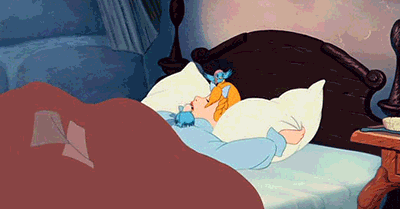
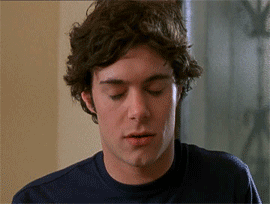
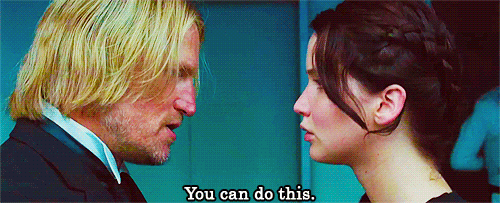
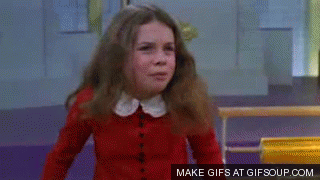
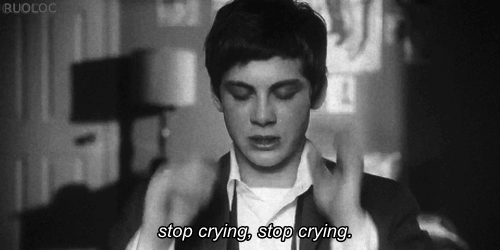
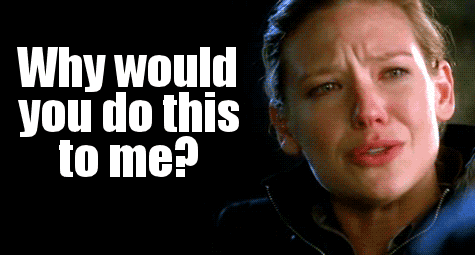



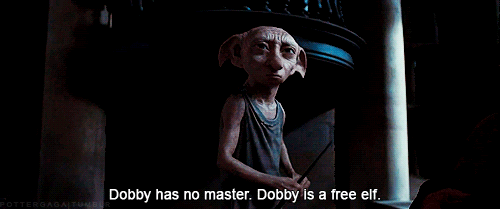




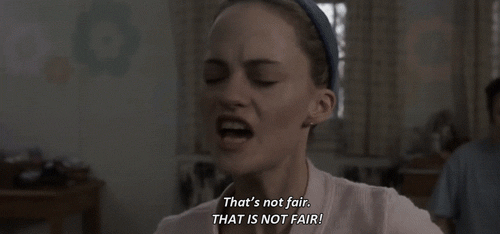

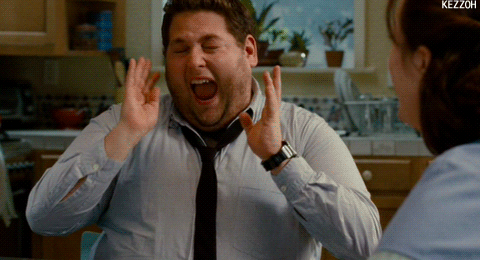
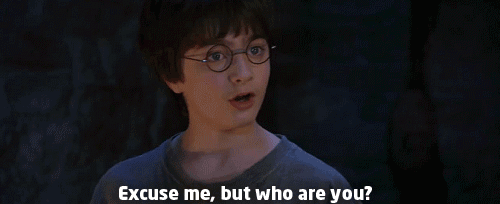
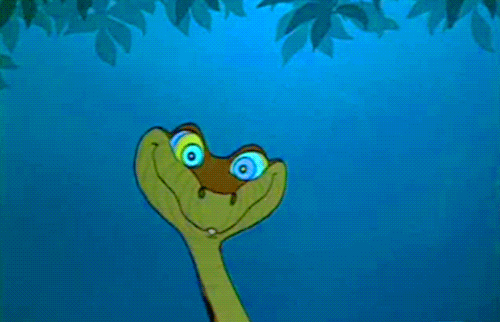
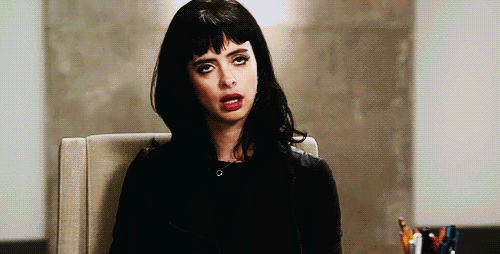
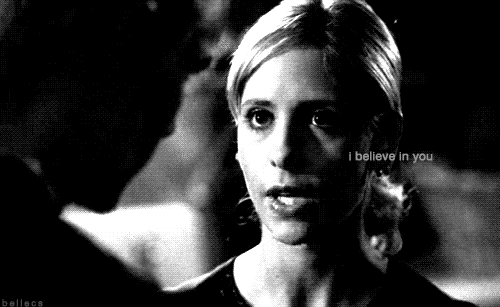



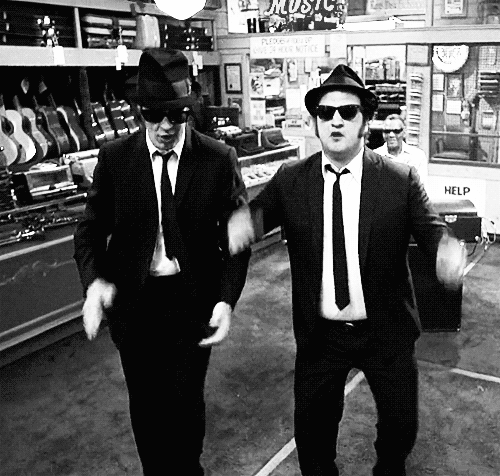

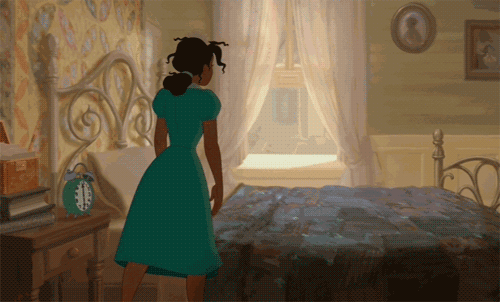

Juggling Act: how one mom tries to find the balance between work and motherhood

How to choose the right pair of jeans, plus win a jeans consultation with a styist

 And over to the expert, Pippa:
To prefix any tips that I share with you I’m going to make an emphatic statement: JEANS NEED TO BE FITTED! Loose-fitting jeans will only make you look bigger than what you are. You have to admit that boyfriend jeans are only flattering on about 5% of the population.
The first and biggest tip I can share with you is this:
And over to the expert, Pippa:
To prefix any tips that I share with you I’m going to make an emphatic statement: JEANS NEED TO BE FITTED! Loose-fitting jeans will only make you look bigger than what you are. You have to admit that boyfriend jeans are only flattering on about 5% of the population.
The first and biggest tip I can share with you is this:
- Higher-waisted jeans are more flattering.
- Your legs will look longer
- The higher waist helps to eliminate any muffin top from happening, as so many 30 – 40 something women can relate to, particularly any who have carried a baby/babies through pregnancy!
 Higher-waisted jeans are often referred to as ‘mid-rise’. A good go-to place for higher-waisted jeans is Country Road for their ‘Regular Straight’ range. Trenery jeans are also always higher in the waist. They’re not the most hip but they suit almost every single client of mine that has ever tried them on. They’re priced at around the R600 mark so they’re affordable too.
2. The second tip concerns embellishment, detail and the colour wash of your jeans.
If you’re trying to minimise your bum and streamline your silhouette, then oversized and contrasting stitching; fade detail; embroidery; beading; bling and pocket detail should all be kept to a minimum.
Higher-waisted jeans are often referred to as ‘mid-rise’. A good go-to place for higher-waisted jeans is Country Road for their ‘Regular Straight’ range. Trenery jeans are also always higher in the waist. They’re not the most hip but they suit almost every single client of mine that has ever tried them on. They’re priced at around the R600 mark so they’re affordable too.
2. The second tip concerns embellishment, detail and the colour wash of your jeans.
If you’re trying to minimise your bum and streamline your silhouette, then oversized and contrasting stitching; fade detail; embroidery; beading; bling and pocket detail should all be kept to a minimum.
 Opt for a darker wash as this is more slimming than a light wash, and go for something as plain as possible.
If you’re not very curvy or you’ve got a great bum that you’re looking to accentuate, then feel free to go all out on the embellishment and detail.
Opt for a darker wash as this is more slimming than a light wash, and go for something as plain as possible.
If you’re not very curvy or you’ve got a great bum that you’re looking to accentuate, then feel free to go all out on the embellishment and detail.
 3 The third tip is about length
If you’re wearing boot leg, wide leg or straight leg jeans you absolutely have to make sure that they skim the floor in whatever shoes you wear i.e. you’ll need 2 pairs of the same jeans if you want to wear them with both heels and flats. Bootleg, wide leg or straight leg jeans that are too short will make you look dumpy.
3 The third tip is about length
If you’re wearing boot leg, wide leg or straight leg jeans you absolutely have to make sure that they skim the floor in whatever shoes you wear i.e. you’ll need 2 pairs of the same jeans if you want to wear them with both heels and flats. Bootleg, wide leg or straight leg jeans that are too short will make you look dumpy.
 Conversely, skinny jeans will never really touch the floor as they are too skinny to sit over your ankle. So the same pair can be worn with both flats and heels.
Remember these are just guidelines, just because you may have some junk in your trunk and a darker wash is more slimming, doesn’t mean you can’t have some fun with your jeans and wear an animal print pair if you want to. I’m not a big fan of rules. At the end of the day, if you’re confident enough to rock whatever you’re wearing, it will look great on you regardless of whether it actually suits you perfectly or not.
Here’s my list of fave go-to stores and websites for investment jeans:
Conversely, skinny jeans will never really touch the floor as they are too skinny to sit over your ankle. So the same pair can be worn with both flats and heels.
Remember these are just guidelines, just because you may have some junk in your trunk and a darker wash is more slimming, doesn’t mean you can’t have some fun with your jeans and wear an animal print pair if you want to. I’m not a big fan of rules. At the end of the day, if you’re confident enough to rock whatever you’re wearing, it will look great on you regardless of whether it actually suits you perfectly or not.
Here’s my list of fave go-to stores and websites for investment jeans:
- Diesel in Sandton City
- www.shop-label.com for international brands like J Brand; Mother Denim; CURRENT/ELLIOTT and Rag & Bone
- Paige Denim – www.shopbop.com
NEED NEW JEANS?
Pippa is offering me and one other blog reader in Joburg (dor anyone who can come to Joburg) a consultation on what will suit you best, and we'll all go shopping to find the best fit, with Pippa on hand to help us. If you'd like to join me, then comment below and you'll be entered into the draw. Please note that you don't have to be a mom to enter. The competition closes on Wednesday 4 September at 9am, and the winner will be announced shortly thereafter. To book a consult with Pippa, you can e-mail her for more information or call on +27 82 868 4981.Show me the party: Morgan’s Minnie Mouse first birthday party

 If you'd like to have your party featured here, please email me here.
If you'd like to have your party featured here, please email me here.
You CAN get away with non-premium nappies

This is a sponsored post for Huggies
There's an Afrikaans saying "goedkoop is duurkoop", which means something similar to "penny wise, pound foolish", or you get what you pay for, or buying cheaply is not the best option. But there's an expection to every rule, like Huggies Dry Comfort nappies, which might not be in the premium nappy market, but are pretty good, and offer the "12-hour protection" promise. I was always scared to try out non-premium brands. What if they leaked? What if someone - gasp - saw that I was buying my son the cheaper option? But I sucked it up, and I was happy to switch and play around with what worked. Huggies Dry Comfort have s leak-guard waistband that fits the baby at the back to prevent leaks. It also has absorbent "lock-gel" that is spread throughout the nappy to lock wetness away quickly, for up to 12 hours. The nappies come in Winnie the Pooh characters, and are available in four sizes – size 2 (3 – 6kg), size 3 (5 – 9 kg), size 4 (8 - 14 kg) and size 5 (12 - 22 kg). Prices vary between the sizes, but for size 4, the recommended retail price is R47.99 (for 17), R124.99 (for 50), and R139.99 (for 66). PS: This is just my guess, and not science, but many products are cheaper because there's less marketing or advertising them. Makes sense, huh?Win a R500 Woolworths gift card with Woolworths Rewards

The winner of the Bio-Oil hamper is…

Win a hamper full of Ella’s Kitchen smoothies


 To enter to win a hamper, simply comment below, and mention which flavour you'd like to try (for you or your child). There is no right answer here - we're just keen to see.
The entries close on Friday 6 September at 9am, and the winner will be announced shortly thereafter.
To enter to win a hamper, simply comment below, and mention which flavour you'd like to try (for you or your child). There is no right answer here - we're just keen to see.
The entries close on Friday 6 September at 9am, and the winner will be announced shortly thereafter.
Dolce and Gabbana does back to school – beautiful clothes (and happy-looking child models)

 So it's back-to-school time overseas, and Dolce and Gabbana have a line just for that. Exquisite clothing, beautiful accessories, and mostly happy-looking kids (even if they are going back to school).
PS: Some of you have rightly commented that a lot of kids in these designer campaigns look either sad or too "grown up". So from now on I'll try and feature the happier shoots. Unless I'm writing about how miserable the kids look.
So it's back-to-school time overseas, and Dolce and Gabbana have a line just for that. Exquisite clothing, beautiful accessories, and mostly happy-looking kids (even if they are going back to school).
PS: Some of you have rightly commented that a lot of kids in these designer campaigns look either sad or too "grown up". So from now on I'll try and feature the happier shoots. Unless I'm writing about how miserable the kids look.




 Via JuniorMagazine
Via JuniorMagazine
What Supernanny did next: Family SOS (plus an interview with Jo Frost – a long but worthwhile read)

I recently interviewed Jo, and while I wish it was a face to face one with me showing her pictures of my toddler and passing the breeze too, it was via a conference call with several other countries asking their questions too.
There were lots of questions asked, and very thorough answers, so I've only included some of the interview
PS: the organised people at the Discovery network sent us transcripts of the interview - I can't take "credit" for transcribing).
PPS: Some of these questions are from the other interviewers
Is there anything that younger mums can do to ensure later happy and well adjusted teenagers? What could I do with my toddler now as a guarantee or as an investment for him later if anything? Allow them to be a part of your conversation. Talk to them about the things that they are interested in, the things that tickle them. Ask them about the things that they are involved in every day and what it meant to them. Allow them to feel that emotionally they can express themselves without you reacting in a way that will close doors. Validate their opinions, whether you agree with them or not it’s important to validate what they’re saying and ask them why, certainly making sure that we can connect with our children, creativity, imagination, reading and literacy is a big one in being able to develop their repertoire and their understanding; enjoying. Being not just verbal affection but also physically being affectionate with them as well is incredibly important as we’re able to touch, as well as we’re able to talk and for them to receive that love and affection in that way. Expanding and coming out of your comfort zone is a good one in being able to enjoy an experience with your children that may be new for them. Allow yourself to put your hair down and get a little bit messy. A lot of parents who are juggling work and trying to keep a home and looking after a toddler, sometimes it becomes very stressful and that stress can really expand itself in keeping things neat and orderly and tidy in a way where we don’t allow our children to be messy, to learn through exploration, to have fun and to enjoy because we don’t want to get involved in the messiness of it all. Allow our children to do that, give them the opportunities having those experiences. Put a structure in place but don’t allow every day to be structured. Have a routine in place that allows their needs to be met. Make sure that as a parent, you take time out for yourself as well because you are doing yourself and your toddlers no favours if you can’t take care of the mother ship yourself. Have a night out with your husband. Have a night out with just the girls. Take time out and don’t feel guilty for it. Don’t always feel that you have to be the person eating the burnt toast in the back of the car. All of those are incredibly important with respect to giving your children every day that well roundedness. You are their main central voicebox. You are their go-to. You are enough. They will enjoy playdates. They will enjoy being around their own peers. However as they get older they will be influenced by those peers, teachers in their lives. Set the example, be the role model. Think every day how you can better yourself and the impression that you make on your young children too. It’s a 24/7 job at the end of the day and one that you are not always rewarded for straight away. Your kids kind of grow up and become 20 and then thank you, but enjoy the experience at the same time and when things get tough and there are days when you feel like I am having a hard day, I just want the kids in bed, put it down to an experience that tomorrow is another day. I think it’s about an attitude, it’s a mindset and it’s an attitude and we have to recognise that what’s important is that we enjoy that journey and know that if you make a mistake, if you make a decision that you know is the wrong one you can go back on it. You can go back on it. You can say “ok, we did that. That didn’t work. We’re going to do this”. Actually “I’ve changed my mind. This is the better thing we need to be doing”. Go back on it. I feel really that we want to remember these things, educate yourself. Read and learn from your experiences, so you can make decisions yourself. A lot of our parenting decisions may be made on the way that we were raised, but we have to start assertively thinking about how we want to raise our own children. There are bits maybe in our parents’ lives raising us we don’t want to adopt. We don’t want to do that, we want to do things differently now; and there are things that we loved and we want to bring those into our own experiences of parenthood. I think really it’s an amalgamation of all of those things in recognising that we are regulators, we are there to protect our children, help them grow and to enjoy the relationships. To raise well-adjusted children in life means that we do have to do some kinds of things as parents that we don’t always want to do and I think that’s key to remember too. What do you think about the whole idea of “Attachment Parenting”? I think attachment parenting is certainly a parenting style that has received positive criticism, however I think it’s important to be able to understand that we also have to raise our children to be self-sufficient, to be independent and to be able to think for themselves. I believe in today’s world, what we should be striving to do as parents is to look at an amalgamation of many parenting styles to understand when we adopt those particular styles that allow us to parent to the best of our ability. There are times when we don’t need to worry about our children’s safety, when we’re at home, we have safety proofed the house...it’s not a concern for us certainly what our child plays with or what they take to the park or the clothes they want to wear at a certain season, but at the same time we have to recognise that we have to be assertive as parents, so we recognise that in creating attachment and being parents who love and put boundaries in place that there are also parents who create structure and create boundaries and teach our children respect so that we have the balance. So “attachment parenting” certainly is a positive parenting style, but I don’t believe that one can parent through attachment throughout the whole of the child’s life, because there are times when we need to adapt other parenting styles. Do you think that your long-standing experience with the “time out” method means the child feels they are learning? Have you ever thought that this method can curb the child’s emotions and bring some negative consequences? Jo Frost: No, absolutely not. Whether you call it a naughty step or whether you call it a time out, what is important is that a child understands that there are consequences for certain behaviour and what we hope we do with toddlers is to instil a moral compass that allows our young toddler to understand the difference between right and wrong, to character build and to morally be the regulator as parents so that we teach our children appropriate, respectful behaviour in society. This in turn allows us to raise well adjusted adults with empathy and an understanding and respect for other human beings in this world. Certainly it is important as part of child development that our children understand that one can conjure a situation and behave in a certain way that will ultimately lead to consequences. Sometimes a child’s behaviour can result in good consequences. Sometimes in not focused consequences, but the experience in itself allows us to recognise and shape the way we think and the way that we behave. What’s important is to encourage the thinking process, so that one understands as they get older the correct way of being able to behave and how to have empathy, respect and love for others in their family as well as those outside. That’s really our job to do as parents to be able to do that. I believe if we can get that right, then we create a situation where we raise children who have respect for other children, and have empathy for those who are different in schools so that we decrease the amount of bullying that is happening in today’s society. If we have better relationships not just within our family but with those outside too, I believe this issue can be resolved. So the time-out method comes along at a very appropriate time when you are teaching toddlers how to know the difference between right and wrong behaviour and consequently if you don’t get that right, then all that leads to is more unacceptable behaviour as the child becomes older. Yet if we get it right, we have those who are growing up to think for themselves, become less impulsive and to take their time before doing so. Are there differences between misbehaving children in different countries in the world? I have had the fortune of being able to help families in the USA and the UK and in a very light hearted way I can tell you that a tantrum from a British five year old looks the same as a tantrum from a five year old who’s American! It actually looks the same as well when a teenager is having a tantrum too. I don’t think there are any visual differences, and certainly misbehaviour is guided personally from the family and what is causing the breakdown. Should a parent spoil a child? Or how could parental gratitude and appreciation be expressed better? I think really the point that you make is that it really is a very strong example that we show as parents, appreciation and gratitude. I think it’s an important part of life in being able to show gratitude for everyday things that happen and that’s normally taught by leading by example from our parents and we learn that from them. Common courtesy and manners are skills that are taught from a very young age, so I think it’s important to be able to instil that in our children from a very young age. Should you never spoil a child? To spoil in the Webster Dictionary is to ruin, so we never want to ruin our children. We never want to give them an abundance of materialism but instead teach them the importance of gratitude and the importance of etiquette and to have good manners. I think it’s about balance. There’s a very big difference between going somewhere special for a birthday and buying that extra balloon or letting them have something for that morning. That’s very different to giving your child an abundance of materialistic aid constantly without doing your job as a parent and doing the things that you should be doing as you’re raising your children which leads them to feel very entitled and very spoilt. Of course that’s not how we want to raise children. What do you find more challenging? Is it helping teenagers or toddlers? Helping families is challenging full stop. I would be lying to you if I said that helping families was not mentally, physically and emotionally taxing on me because it is. You are in a family situation where you are dealing with constant confrontation, constant disagreement. You are dealing with families whose adrenaline is on the high end. I’m on the front line of a family war zone because when I go in and I help families they are at the point of crisis, so everything is hyper, everything is oversensitive, the adrenaline is up. You are on the front line, so of course it’s very taxing to be in that toxic environment but the object is to push through that and to do what is necessary for each family member or for them all as a family. My job is to push them through the other end, so that’s the object of being able to do that. It doesn’t come any easier to do it with toddlers or teenagers because the environment is still toxic. The environment is still hostile, so the environment that you’re in 18 hours a day is what you are challenged with as a teacher, challenged with as an expert in being able to push the family through. The irony is obviously that you couldn’t have the issues without the environment, they go hand in hand. The nice thing always to remember is that you are going to come out the other end, so as much as it’s rough waters in the beginning and neither tween, teen or toddler is more challenging than the other; the reality is is that with hard work and really doing what you need to do and sometimes being very militant and other times being very tender is what ultimately will get you through that major hump, slowly but surely.Family SOS will be premiering on TLC (DStv 172 and TopTV 453) on Wednesday 4 September at 8.10pm.
Here's a clip from the show:
Etihad Airways now offers “Flying Nanny”– someone to help

What NOT to say to a new mom







































































